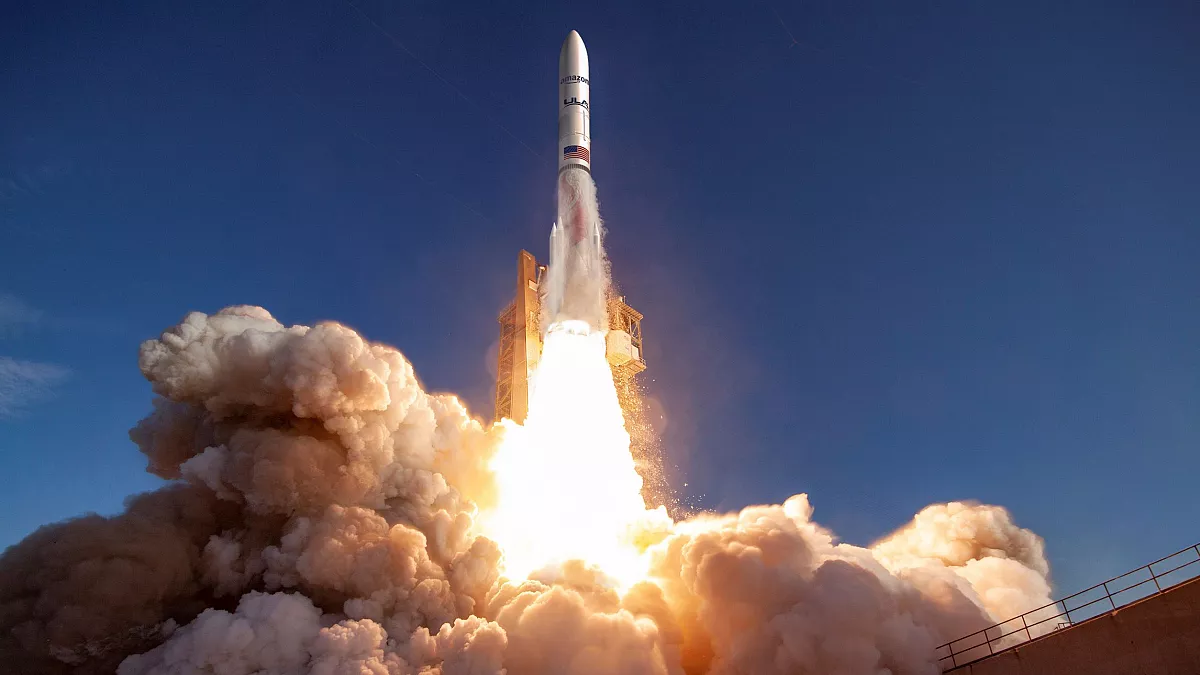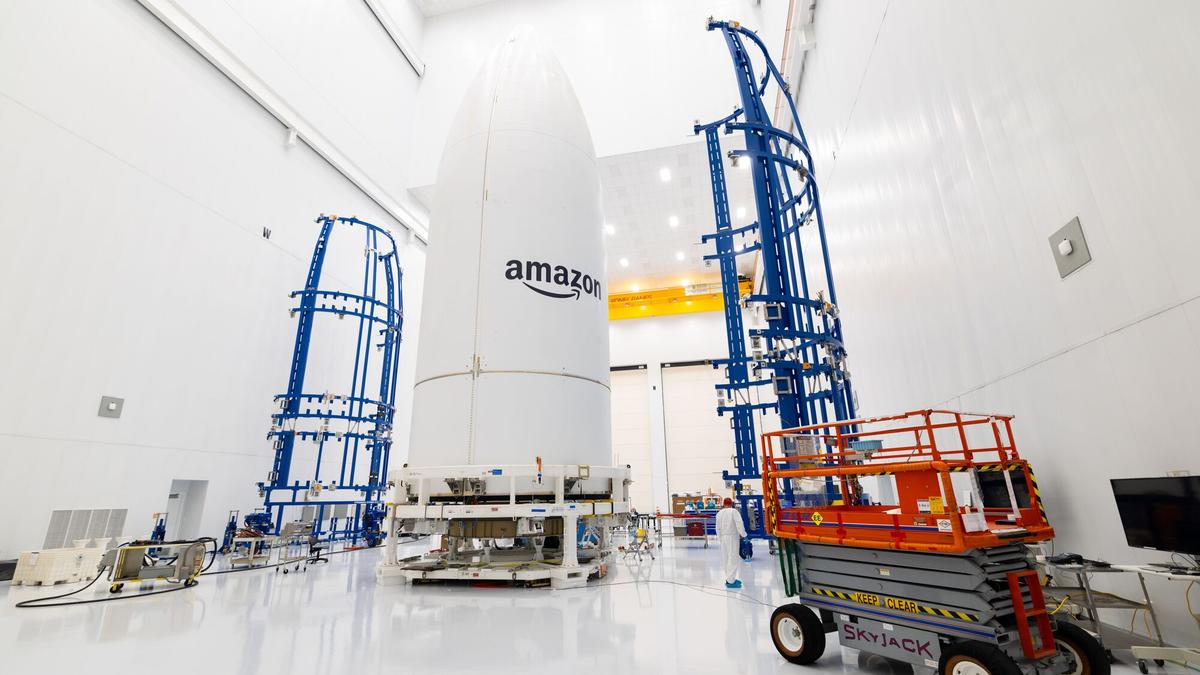A mazon is stepping firmly into the satellite internet arena, preparing for its first major launch of Project Kuiper satellites next week — a bold move aimed at challenging SpaceX’s Starlink dominance.
The mission, named Kuiper Atlas 1, will deploy 27 Kuiper satellites aboard an Atlas V rocket from Cape Canaveral, Florida, on Wednesday, April 9 at 12:00 pm EDT (1600 GMT). The launch will be managed by United Launch Alliance (ULA), a joint venture between aerospace giants Boeing and Lockheed Martin.
This milestone follows the successful testing of two prototype satellites in October 2023 and marks the beginning of Amazon’s full-scale deployment phase. Project Kuiper aims to provide high-speed, low-latency internet to remote, underserved, and disaster-affected regions across the globe.
Amazon plans to build a constellation of over 3,200 satellites in low Earth orbit, directly positioning itself as a competitor to Starlink, which has already deployed more than 6,750 satellites since 2019.
The global race for satellite-based internet is intensifying. China’s GuoWang constellation plans to launch 13,000 satellites. Canada’s Telesat and Germany’s Rivada are working toward 300 and 600 satellites respectively. The EU’s Iris project will include 170 satellites, while the U.S. military’s Space Development Agency expects to deploy between 300 and 500.
Amazon expects to begin rolling out its broadband service later this year, aiming to meet the growing demand for fast and reliable internet in regions where traditional infrastructure falls short.
This launch signals Amazon’s serious commitment to reshaping the global connectivity landscape.






0 Comments